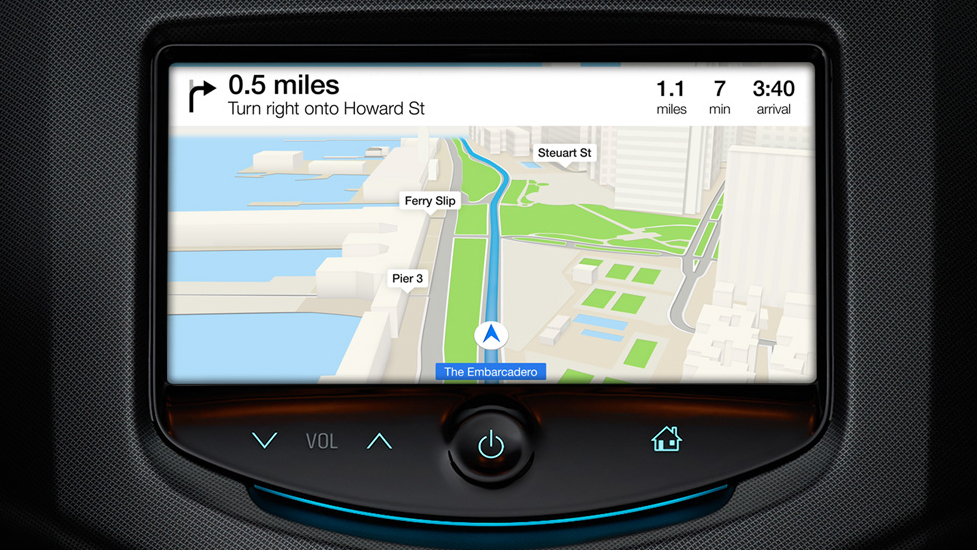Apple Maps: one year on
Does the latest Maps have what it takes to win you back?

Sign up for breaking news, reviews, opinion, top tech deals, and more.
You are now subscribed
Your newsletter sign-up was successful
This time last year, Apple told Google to get lost: from iOS 6 onwards, Apple would provide its own mapping app.
You can imagine the snickers at Google HQ when the launch of Apple-powered Maps proved to be a disaster: 3D maps appeared to have suffered terrible disasters, entire towns disappeared and the maps appeared to be so error-prone that Apple ended up in the humiliating position of urging customers to use rivals' applications.
The debacle saw the exit of mapping team head Richard Williamson and iOS senior vice president Scott Forstall, and by December 2012 we were all delightedly installing the new standalone Google Maps app and relegating the Apple one to our "crapple" folders.
Is Maps still lost?
Why Google had to go
Apple's decision, we suspect, was motivated more by a desire to boot Google off iOS than a desire to make the world's best mapping service. Apple likes to control the technologies that matter to it, and location awareness is important for the future - not just in Maps but in other apps such as Reminders and Siri.
Reports suggest that Google was looking for a bit more user data than Apple was comfortable with and that Google wouldn't give Apple voice-controlled turn-by-turn directions.
And of course the happy relationship between Apple and Google had turned into something more combative when Google launched Android as a direct competitor to the iPhone.
Sign up for breaking news, reviews, opinion, top tech deals, and more.
What Maps got right - and wrong
Making maps is tough, and as Apple discovered, there's a lot more to it than just buying in some mapping data and making it look nice.
Apple licensed its core maps from TomTom, which acquired the Google Map-assisting TeleAtlas mapping service in 2008. TomTom's core business is satellite navigation, and while there were plenty of errors - no mapping system is ever perfect - most people found the driving directions were very good.

But there's more to mapping than roads, and that's where Apple Maps went wrong. Many of us use maps to find particular businesses and points of interest, and the data Apple had for that wasn't very good.
It was old, and it was often inaccurate: in the UK it listed long-dead retail chains and located enormous superstores in peoples' back gardens while failing to find businesses that had been operating for years. According to TomTom, "they had so many different sources of data that they were trying to merge all in one application. It didn't work out."
Developers did warn Apple about this, but Apple either didn't take them seriously or felt it could get away with shipping a less than perfect product.
Apple has continually updated its maps since the launch of iOS, adding improved satellite imagery and turn-by-turn navigation for more cities, but it's chasing a moving target: Google Maps not only had a head start, but it has been updating constantly too.
Maps in iOS 7 and Mavericks
We've got good news and bad news about the latest iteration of Maps: it's better, but it isn't there yet. We were able to replicate multiple iOS 6 mapping issues such as old data and incorrectly labelled businesses in the UK version of iOS 7, and while it isn't as bad as it's been painted, the search is often useless.
The whole experience is notably inferior to Google Maps or third-party navigation apps from the likes of TomTom. Gizmodo put it very well in a headline: "Apple Maps Are Getting Slightly Less Crappy In iOS 7".

That doesn't mean it hasn't been improved, though. Maps now has a full-screen mode and a night mode, there are turn-by-turn directions for pedestrians, you can specify whether walking or driving should be the default for directions, and you can now look around the route by pinching and zooming to see more or less detail. There are improved satellite images too.

Contributor
Writer, broadcaster, musician and kitchen gadget obsessive Carrie Marshall has been writing about tech since 1998, contributing sage advice and odd opinions to all kinds of magazines and websites as well as writing more than twenty books. Her latest, a love letter to music titled Small Town Joy, is on sale now. She is the singer in spectacularly obscure Glaswegian rock band Unquiet Mind.